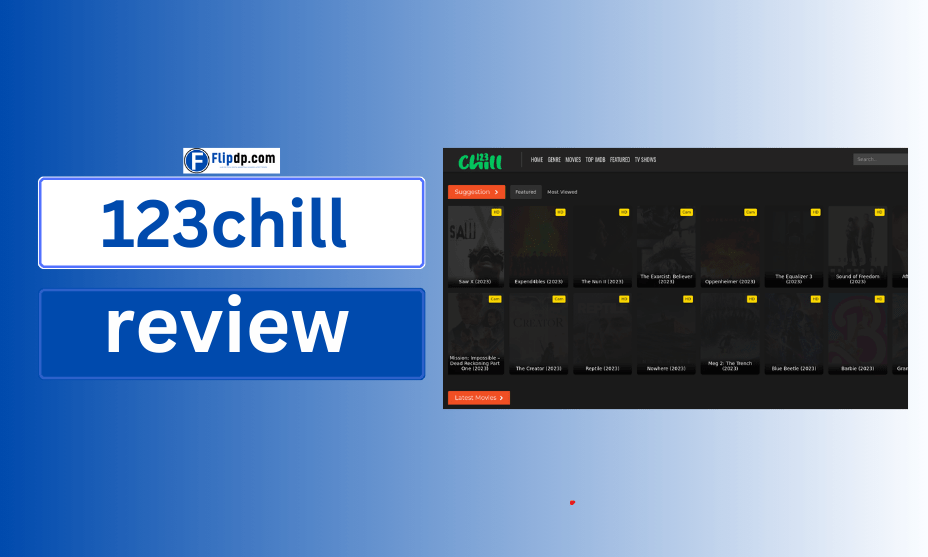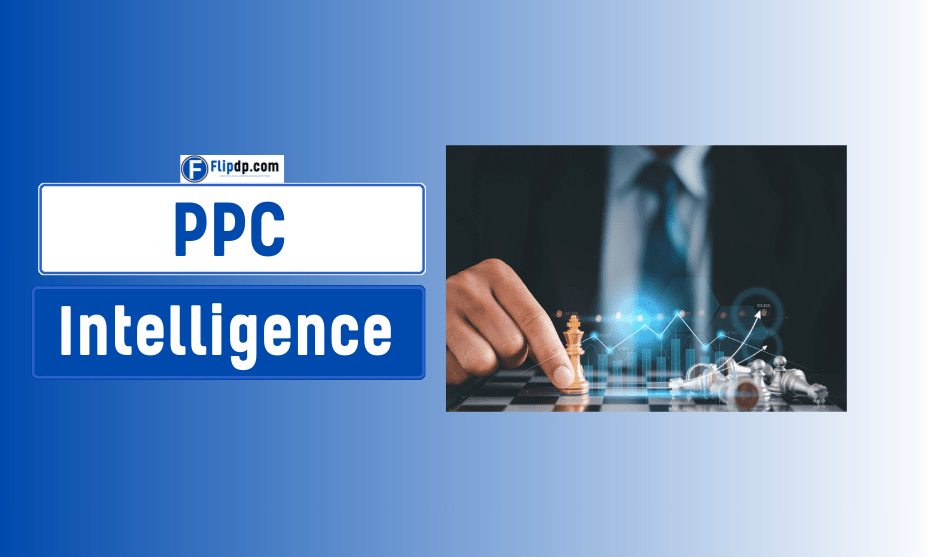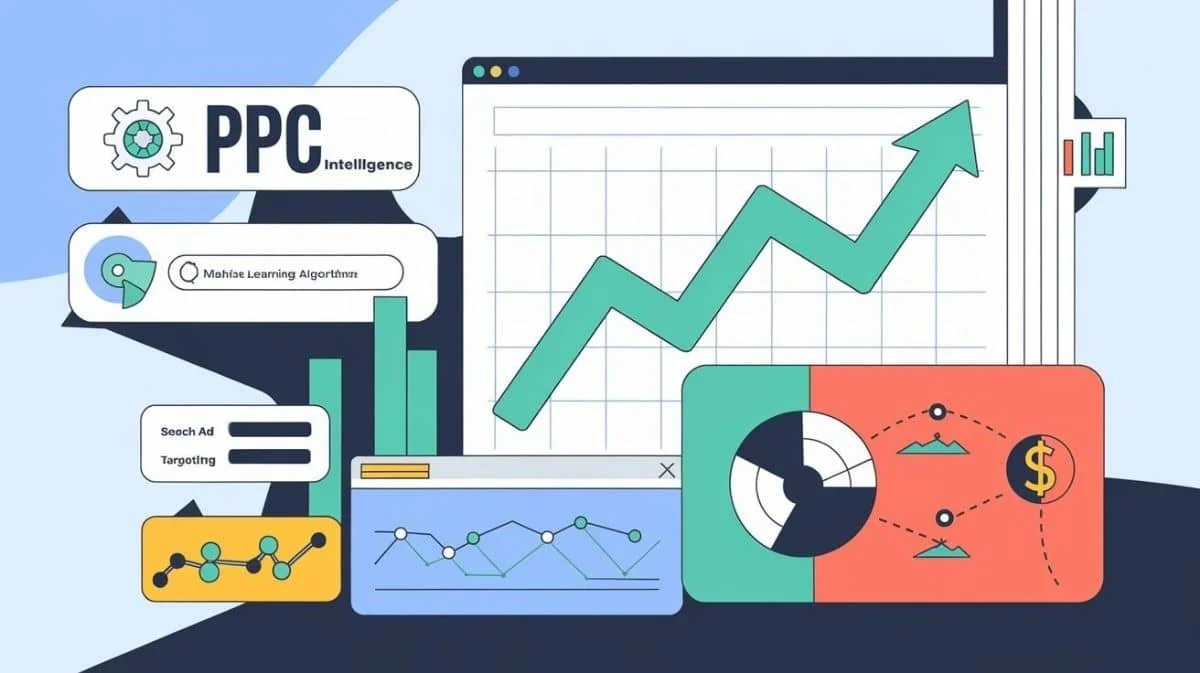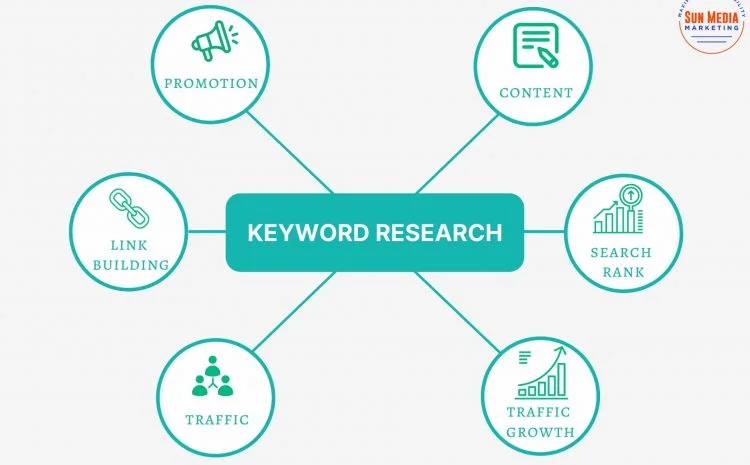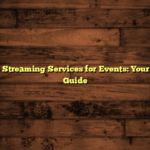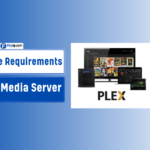If you’re up for the challenge of supercharging your PPC campaigns and leaving your competition behind, then you are in the right place. You’re in PPC Intelligence 101, your guide to becoming data-driven advertising. Read on to learn whether you are a seasoned marketer or fresh off the farm, we have everything you need to know to make your campaigns successful.
Imagine Having the Power To:
- Find out how your competitors are running their ad campaigns
- Leverage intel into optimizing your ad spend
- Create ads that attract and convert
This blog will blast you deep into the world of PPC intelligence where we’ll cover the must-know techniques, tools, and strategies to make your campaigns crush it. Put yourself into a position to unlock the full potential of your PPC efforts and fully enjoy the results. It’s time to join me on this journey to PPC mastery!!!
Key Takeaways
- Make sense of the core components of PPC Intelligence: keyword research, ad copy optimization, and landing page analysis.
- Learn how to use competitive intelligence to your strategic advantage.
- Learn advanced optimization techniques so you can boost your quality score and ad position.
- Learn about Adthena’s AI-driven solution alongside the essential tools and platforms through which you can supercharge your PPC efforts. It utilizes master data analysis and performance tracking to enable data-driven decisions as well as improve ROI.
- Discover PPC Intelligence and what roles AI and machine learning might play for the future.
We Understand PPC Intelligence
PPC intelligence is such a strategic business intelligence that helps marketers make data-driven decisions about their pay-per-click advertising campaign. This means gathering and analyzing competitor insight, keyword insight, and market trend insight for the purpose of optimizing campaign performance.
What is PPC Intelligence?
PPC intelligence means collecting and analyzing the data from different sources to use for optimizing pay-per-click advertising strategies. This approach allows marketers to:
- Find high-ranking keywords
- Analyze competitors’ strategies
- Optimize ad copy and landing pages
- Adjust bidding strategies
- Enhance total campaign effectiveness
Competitive PPC Intelligence Role
PPC Intelligence for competition is the ability to figure out and take advantage of information concerning your competitors’ PPC strategies. By analyzing their approaches, you can:
- Discover new keyword opportunities
- Find areas in your plan that can be filled
- Benchmark your performance with the industry standards
- Stay ahead of market trends
Using Search Intelligence
Search intelligence is collecting insights from the search engine result pages (SERPs) which can educate your PPC strategy. This includes:
- Analyze ad positions and formats
- Changes in search trends
- Finding new competitors in the market
Using search intelligence, marketers can then adjust their campaigns on the fly to remain competitive and relevant in this fluctuating digital space.
Key Takeaway: Pay-per-click intelligence is about getting a complete perspective of your pay-per-click campaigns from a data-driven and competitive strategy.
PPC Intelligence in Digital Marketing
Digital marketing strategies are going to be determined by PPC intelligence. Marketers can utilize data-driven insights to make educated decisions that will make a huge difference in the online presence and campaign results of the firm.
Improving Marketing Strategies
PPC intelligence enables you to understand how consumers behave, what the market looks like, and what your competitors are doing. Marketers can now use this information to refine their strategies and delivery in so much that they reach the right people with the right message at the right time.
Improving ROI
Data you get from PPC campaigns can help marketers to identify the best keywords, ad copies, and landing pages for your campaigns. It allows them to dispose of their budgets more effectively, in return of highest possible return on investment.
Staying Competitive
With PPC intelligence, businesses are staying on top of their game in the fast pace digital world. It enables them to adjust quickly to changes in the consumer preference and market circumstances.
Key Takeaway: Data-driven marketing strategies that can improve online presence and improve campaign success will require PPC intelligence.
PPC Intelligence Key Components
Surprisingly, PPC intelligence is made up of several essential elements that need to work together to achieve successful results. Not only does it ensure marketers remain competitive and maximize return on investment in everything they do, but also by understanding and master this components, marketers can do it.
Keyword Research
PPC campaign without careful keyword research is a little like driving a car and engaging in discussions about locations. It involves:
- Which search terms search your target audience
- First you analyze search volume and competition
- Finding long tail keywords with a score of great intent
- Doing that with Google Keyword Planner for data driven insights
Ad Copy Creation
Ad copy attracts clicks and conversions – and compelling ad copy is necessary. Key aspects include:
- How to create clear, concise, and compelling messages
- Adding Relevant Keywords Naturally
- Emphasizing what differentiates that product from the rest in a notable way
- But with strong calls-to-action to encourage user engagement
Landing Page Optimization
Conversions happen on the landing page. Optimize it by:
- Relevant to the ad and keyword
- Make your design clear and user friendly
- To improve user experience, we need fast load times
- Adding persuasive content and strong calls to actions
Audience Targeting
It’s crucial to understand what your target audience is and get to them. This involves:
- Defining buyer personas around demographics & behavior
- More personalized campaigns using segmentation on the audience
- Remarketing to re-engage visitors who previous visit
- Create in-market audiences to find potential consumers
Key Takeaway: In order for a PPC campaign to succeed, it will depend on in-depth keyword research, powerful ad copy, optimized landing pages, and targeted audience.
Keyword Research Techniques
Click through keyword research is the cornerstone of a successful PPC campaign. Finding the right keywords lets you reach out to your audience more specifically and boost your Ad performance. Here are some proven techniques to enhance your keyword research:
Use Google Keyword Planner
- While Google Keyword Planner isn’t a new tool, it’s a great tool for finding new keywords to rank for and an easy way to estimate search volume.
- Begin by entering your seed keywords and look at the suggestions.
- Find keywords with high keyword search volume and minimum competition.
Explore Long-Tail Keywords
- Specific phrases that might be more long tail — lower competition, higher conversion.
- When these keywords are used, you can target niche audiences and keep your cost per click low.
- Find long tail variations by using tools such as Answer the Public or Google’s ‘People also ask’ section.
Analyze Competitor Keywords
- If you study your competitors’ keywords, you can find some great opportunities to pursue.
- Use tools like SEMrush or SpyFu to discover the keywords that your competitors are bidding on.
- It can also show you the holes in your own strategy, as well as new keyword ideas.
Leverage Search Intent
- Keywords used in search should be a function of the user’s search intent.
- Arrange your keywords by informational, navigational, or transactional intent to then write more specific ad groups and get more optimized landing pages.
Key Takeaway: Effective keyword research involves a mix of Google Keyword Planner, researching long tail keywords, analyzing competitor strategies, and considering search intent when creating a solid PPC keyword list.
Ad Copy Optimization Strategies
Success in PPC depends on the ability to craft compelling ad copy. Here are some effective strategies to optimize your ad copy:
Use Dynamic Keyword Insertion
- Learn how to insert dynamic keyword insertion into your ads to make them more relevant to searchers.
- This technique automatically places the user’s search query in your ad, increasing its relevance, and therefore, its potential click through rate.
Create Emotional Appeal
- If your copy makes your audience feel something, it will be impactful.
- Introduce words that generate a feeling such as urgency, excitement, or curiosity to bring about clicks.
Show off the Usable Selling Points
- Tell your audience what makes your product or service different from competitors.
- Focus on unique features, benefits, or offers that will catch their potential customers’ eye.
Have a Strong Call to Action
- Your CTA has to be as clear and compelling as the title.
- Action-oriented words such as “Buy Now,” “Learn More,” or “Get started” help motivate users to take immediate action.
Test Different Ad Variations
- Continuously test different ad copy variations until your audience resonates best.
- Do A/B testing on different headlines, descriptions, and CTAs to find the best over time.
Key Takeaway: Optimization of the ad copy requires dynamic keyword insertion, construction of emotional appeal, use of unique selling points, a strong call to action, and continuous testing, so that the ad performance improves.
Landing Page Analysis and Article Optimization
PPC intelligence covers all these, especially landing page analysis and optimization, which can have an immense impact on the conversion rates of your landing page and your overall campaign success. Revise your landing pages as much as possible to see what you can do better to give your potential customers a better experience, resulting in a better return on investment.
Analyzing Performance of a Landing Page
The first step to start optimizing landing pages is to analyze what performance you are getting from them up until now. Use tools like Google Analytics to track key metrics such as:
- Bounce rate
- Time on page
- Conversion rate
- Exit rate
By looking at the data these metrics generate about your visitors and what makes them click, you will get a clearer idea of how well or not your landing pages are performing, providing you with an idea of what you need to change.
Elements to Optimize
When optimizing your landing pages, focus on these key elements:
- Headline: Make it clear, effective, and fit for advertising.
- Call-to-Action (CTA): Be prominent, action-oriented, and relevant.
- Page Load Speed: Eliminate bounce rates to enhance loading times.
- Mobile Responsiveness: Ensure your page looks great on all devices.
- Content Relevance: Match your landing page content to your user intent.
Continuous Improvement A/B Testing
Implement A/B testing to compare two different versions of your landing pages to determine which elements to keep. Test one element at a time, such as:
- Different headlines
- CTA button colors or CTA trigger location
- Form length and fields
- Images or videos
Continuous testing and refining of your landing pages helps you incrementally get better results, faster, both in the offline and the online advertising space.
Key Takeaway: Landing page analysis and optimization can dramatically increase conversion rates and the overall performance of your PPC campaigns.
Competitive Intelligence for Your Leverage
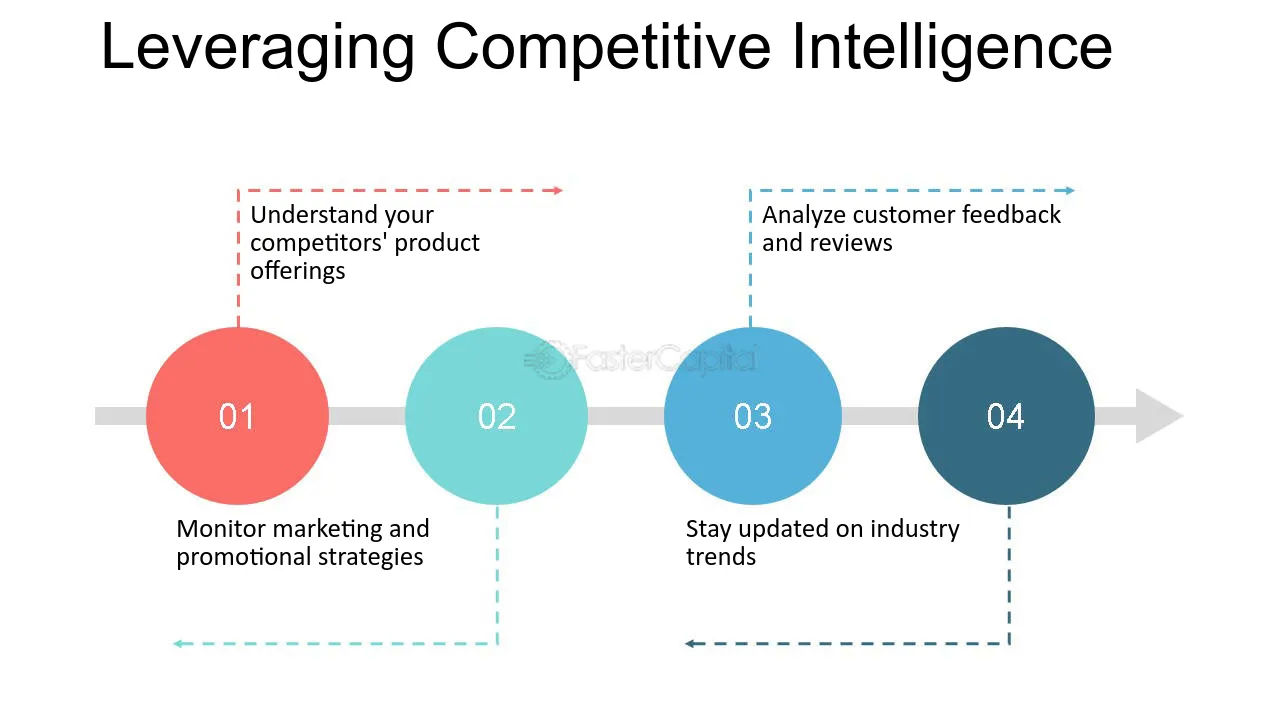
Importance of Competitive Intelligence
For success in the PPC advertising world, everything happens fast, and staying in front of your competition is key. Competitive intelligence provides you the insights you need to better understand your competitors’ strategies and adjust accordingly so you can stay one step ahead of that competition.
Finding Out What Competitors Are Up To
This gives you a chance to see what your competitors are doing, what strengths and weaknesses they exhibit in their PPC campaigns. They will look for patterns in the keywords used, ad copy, and landing pages. This information can help you:
- Find new keyword opportunities.
- Improve your ad messaging.
- Develop better conversion landing pages.
Identifying Market Gaps
Competitive intelligence can help you identify your untapped opportunities in the industry. By examining your competitors’ strategies, you may find:
- Audience segments underserved.
- Long-tail keywords neglected.
- Ad formats or platforms unexplored.
Benchmarking Performance
Keep tabs on your campaign performance with a comparison to industry standards. Key metrics to consider include:
- Click-through rates (CTR).
- Conversion rates.
- Cost per click (CPC).
- Quality Score.
These benchmarks can serve as goals on which you can base yours while at the same time allowing you to recognize what requires attention in your own campaigns.
Adapting to Market Changes
PPC is a moving target. By monitoring your competitors’ activities, you can:
- Keep yourself updated with industry news.
- Be able to quickly respond to consumer behavior changes.
Maintaining a competitive advantage calls for adjusting your strategies.
Key Takeaway: Competitive intelligence gives you a chance to refine PPC strategies and opportunities and to remain competitive in a crowded market.
Competitor Strategies Analysis
It is very important to analyze your competitors’ strategies to have a strategic advantage in the PPC landscape. Analyzing how they tackle the issue can teach you much about the options you want to take.
Identifying Key Competitors
Identify the search results competitors of your business initially. Check for companies you see popping up in your ads alongside relevant words they use. You’ll need to focus on these players for your analysis.
Looking at Ad Copy and Messaging
Understand which messaging strategies your competitors are using by carefully reviewing their ad copy. Pay attention to:
- Call to action (CTA) phrases.
- Use of emotional triggers.
- Pricing or promotions included.
Analyzing Keyword Targeting
Expose your competitors’ keywords by using tools such as SEMrush or SpyFu. This can reveal:
- Forgotten high-performing keywords.
- Your own gaps in the keyword strategy.
- Long-tail keyword targeting opportunities.
With this, we start assessing landing page strategies.
Landing Page Strategies
Run through your competitors’ landing pages and analyze what strategies of conversion optimization they use. Look for:
- Clear value propositions.
- The structure of persuasive content.
- The proper use of visuals and social proof.
- Strong calls-to-action.
Evaluating and analyzing competitors’ strategies in depth will help you gain a 360-degree picture of the search landscape and identify insights that will help you to optimize your own PPC campaigns.
Key Takeaway: This is where competitor strategy comes into the picture, creating valuable insights to help you boost your PPC performance and stand out in your market.
Benchmarking Performance
Tracking PPC intelligence greatly helps marketers judge how effective their campaign is compared to competitors. This gives you the ability to compare metrics to identify where you can improve, as well as take advantage of untapped opportunities.
Market Share Analysis
Your market share in the PPC landscape tells you something important about your competitive position. With Adthena’s PPC Market Share feature, you can compare your ad spend and key metrics against competitors. By analyzing this, you can understand what you achieve, how visible you are, and how you spend your budget.
Performance Metrics Comparison
Measure your Google Ads’ performance metrics with your industry benchmarks and top competitors. The most important things to focus on are the key indicators, such as:
- Click-through rates (CTR).
- Conversion rate.
- Cost per acquisition (CPA).
It will compare areas where you are excelling and those you need to work on.
Growing Opportunities for Identifying
By comparing performance, you can identify areas of your PPC campaigns that could potentially see some growth. Look for gaps your competitors might be missing in terms of:
- Coverage of keywords.
- Ad positions.
- Audience targeting.
These insights can give you a competitive edge in the market.
Key Takeaway: PPC performance benchmarking against competitors will give you insights for your PPC campaigns and provide you with a competitive edge in the market.
Advanced PPC Optimization Techniques
PPC success in a digital advertising world that continues to evolve is critical. By using advanced optimization techniques, you can optimize your campaigns to the nth degree and greatly improve your return on investment.
Quality Score Optimization
Quality Score is one metric that affects both how high and how much you’ll pay for your ad. To improve your Quality Score:
- Ensure that your ad copy correlates with the keywords.
- Limit to one ad group per tightly themed subject topic.
- Optimize relevance and user experience on your landing pages.
Crafting compelling ads can also help improve your click-through rates (CTR).
Ad Position Monitoring
Keeping a close eye on your ad position can help you maintain visibility and adjust your strategy:
- Use automated generation to monitor ad position.
- Configure alerts whenever position changes significantly.
In fact, you can adjust bids strategically to maintain the best placement possible.
Smart Bidding Strategies
Leverage machine learning to optimize your bid amount:
- Run Target CPA or Target ROAS bidding.
- Use Enhanced CPC, which automatically adjusts bids for conversions.
- Experiment with bidding strategies to see which fits your campaigns best.
Ad Rotation Optimization
Test multiple ad variations to improve performance:
- Create at least 3 to 4 ad variations per ad group.
- Use ad rotation settings to optimize for clicks or conversions.
- Review and pause ads that do not perform well.
By doing this, you can achieve better results for your campaigns and stay ahead of the competition by implementing these advanced PPC optimization techniques.
Key Takeaway: Effective PPC optimizations, such as Quality Score improvement, monitoring of ad position, smart bidding, and ad rotation, can improve campaign performance and result in higher ROI.
Bid Management Strategies
The daily fee is responsible for the success or failure of your PPC campaign. Optimizing your bidding strategy will help you achieve the best performance and ROI for your campaign. Here are some key strategies to consider:
Automated Bidding
Use automated bidding options in Google Ads to automatically optimize for you, saving time spent thinking about the best parameters for each campaign. These AI-driven tools adjust bids in real-time based on various factors:
- Target CPA: Tell Google what cost you want per acquisition and let Google optimize bids to meet that cost.
- Maximize Conversions: Bid automatically to get as many conversions in your budget as possible.
- Target ROAS: Bid to achieve a specific return on ad spend.
Manual Bidding
For more control, consider manual bidding strategies:
- Position-based bidding: Control how much to pay to achieve a specific ad position.
- Time-of-day bidding: Increase bids during peak conversion hours.
- Device-specific bidding: Allocate more budget to devices that perform better.
Budget Allocation
Distribute your budget effectively across campaigns and ad groups:
- Allocate more budget to high-performing keywords and campaigns.
- Adjust budget based on seasonal trends and market demands.
- Regularly reallocate budget based on performance data.
As with all things related to successful bid management, there’s no ‘set and forget’ here; it’s a continuous monitoring and adjustment process. Regularly review your campaign data and make informed decisions to optimize your PPC campaign and improve your PPC results.
Key Takeaway: From automated and manual strategies to leveraging bid management techniques for maximizing PPC success and ROI, this is what’s needed.
Utilizing Ad Extensions
Powerful tool that can help you improve your PPC campaign, ad extensions are! Additional information and links in your search ads can help increase the visibility and increase click-through rates.
Types of Ad Extensions
- Sitelink Extensions: Extra links to specific pages on your website.
- Call Extensions: Easy contact by displaying your phone number.
- Location Extensions: Include your destination for the map.
- Review Extensions: Go ahead and include positive reviews from third-party sources.
- Callout Extensions: Increase your products’ uniqueness alongside offers.
Benefits of Ad Extensions
- Increased ad real estate: Your ads take more real estate of the search results page.
- Improved click-through rates: A higher engagement comes from more information.
- Better quality score: Ad extensions can increase your ad’s relevance.
- Enhanced user experience: Gives valid data up front to possible clients.
Best Practices
- Make sure that the relevant extensions complement the goals of your campaign.
- Keep different (and at the same time many) combinations of extensions regularly updated and tested.
- Always make sure to put in work and that all information is accurate and up to date.
But you need to be able to monitor performance and adjust accordingly.
Ad extensions allow you to positively impact the increasing needs of your PPC campaigns, boosting your online presence.
Key Takeaway: PPC ad extensions are essential PPC tools to achieve higher fetch PPC ad visibility and also higher PPC ad conversion. They possess too much, you can say, fingers to touch.
PPC Intelligence Tools and Platforms
In the constantly moving world of PPC advertising, you should have the right tools in your arsenal. In this post, we’ll dive into some of the best platforms to supercharge your PPC intelligence efforts.
Google Ads
PPC advertising consists largely of Google Ads, though other exchanges exist too. A complete set of tools for keyword research, creation of ad copy, and measuring ad performance. The Keyword Planner on the platform is particularly handy for finding new keywords and determining how many new keywords are likely to impact you in your campaigns.
SEMrush
Competitive analysis is a first for the SEMrush power to conquer. But it also lets you peek under the covers of how your competitors are doing their PPC, showing you what their highest performing keywords, ad copy, and landing pages. In a way, it gives you insight into what you’d do with your own campaigns and what untapped opportunities you could find.
SpyFu
The company is popular for its abilities in doing competitor analysis for both organic and paid search. The reports are detailed with data on your competitors’ most profitable keywords, ad spend, historical data, and more. The information can be extremely useful in crafting your PPC strategy.
Adthena
The AI-driven Adthena platform gives real-time competitive intelligence about search marketing. This features that it has called ‘Whole Market View’ gives a complete canvas of the search landscape which you can then use to quickly shed light on threats and opportunities.
Key Takeaway: They can also be used together to get a holistic picture of the PPC landscape, giving you data-driven decisions around which can help you succeed.
Adthena AI-Driven Platform
PPC intelligence tool, Adthena’s AI-driven platform is a standout whereby it uses its intelligence. Designed to be a solution and not simply a static product, this innovative option taps into some of the newest and most powerful artificial intelligence to bring marketers unprecedented insights into their competitive landscape.
Comprehensive Market Analysis
Adthena’s platform gives brand advertisers an overview of how they are playing the interactive race, which is usually completely hidden behind their spend. It analyzes huge amounts of information and reads the trends, opportunities, and threats in real-time.
Brand Protection Features
Brand protection is one of Adthena’s key strengths. It continuously watches for competitors bidding on your brand terms so it can help you protect your brand equity and avoid redirected traffic.
Actionable Insights
At Adthena, the data we provide doesn’t just tell — it shows how to act. Marketers are able to draw informed decisions quickly by using the platform’s AI algorithms that process complex information and present it in simple formats.
Key Takeaway: PPC intelligence from Adthena’s AI-driven platform allows you comprehensive brand protection, insights to plan around, and analysis of the market.
Performance Tracking and Data Analysis
Data analysis and performance tracking are important for PPC advertising in the world. Strategic use of data can be utilised by marketers to obtain some crucial insights in relation to the effectiveness of their campaigns, and to make informed decisions regarding improving their efforts.
Data Driven Decision Making – Take the Power!
Data analysis allows advertisers to:
- Find the patterns and trends among campaign performance
- Find ways of improvement
- More effectively allocate budget
- Understand audience behaviour and audience preferences
With a data driven approach, marketers cease guesswork and are able to make decisions based on concrete evidence.
Key Metrics to Track
To effectively analyze PPC campaign performance, focus on these essential metrics:
- Click-Through Rate (CTR)
- Conversion Rate
- Cost Per Click (CPC)
- Cost Per Acquisition (CPA)
- Quality Score
- Return on Ad Spend (ROAS)
Monitoring these metrics on a regular basis gives a holistic idea of the health of the campaign, and you can only realize those things that require your attention.
Performance Tracking Best Practices
To maximize the benefits of data analysis:
- Ensure proper tracking and attribution
- Collect granular data by using UTM parameters
- Implement conversion tracking for all relevant actions
- Regularly review data and spot trends
- Conduct A/B testing to refine strategy
- Use automated reporting tools to be efficient
Using these best practices allows marketers to maximize their data and keep their PPC campaigns continuously improving.
Key Takeaway: For optimizing PPC campaigns and increasing the results from data driven decisions, data analysis and performance tracking are key.
Key Performance Indicators
PPC Campaigns KPIs
When it comes to measuring the success of your PPC campaigns, Key Performance Indicators (KPI) count. The metrics are very helpful to understand the performance campaign and this also directs your optimization efforts.
Top PPC KPIs You Need to Monitor
- Click-Through Rate (CTR): The percentage of people who click on your ad after seeing it is the number ascribed to this metric. A high CTR means your ad is targeted and desirable to your target market.
- Conversion Rate: This KPI measures the percentage of visitors who execute a desired action on your landing page, like making a purchase or completing a form.
- Cost Per Click (CPC): This indicates how much you’re paying for each click on your ad. CPC monitoring will let you manage your budget well.
- Quality Score: Your cost and your ad rank are affected by your Quality Score for your keywords. Higher scores mean better ad positions and less cost.
- Return on Ad Spend (ROAS): This KPI helps you gauge the profitability of your campaigns — basically, how much you’re making for every dollar spent on advertising.
Monitor these KPIs constantly and then use them as a basis for making data-driven decisions about optimizing your PPC campaigns so that you are likely to get the results you need.
Key Takeaway: CPC, Quality Score, Conversion Rate, ROAS, and CTR are essential KPIs you need to track and improve your PPC campaign performance.
PPC Intelligence – Emerging Trends
PPC intelligence is one of those places that is continuously evolving. Marketers who want to achieve campaign effectiveness and return of investment (ROI) have to stay ahead of the curve. Now is the time to take a look at some of the emerging trends in the future of PPC intelligence.
AI-Powered Optimization
PPC intelligence is revolutionized thanks to Artificial Intelligence (AI) and Machine Learning (ML). Real-time, these technologies can analyze big piles of data and find patterns and insights that humans may otherwise overlook. AI-powered tools can:
- Predict click-through rates and conversion probabilities
- Automatically adjust your bids based on complex algorithms
- Provide the best ad copy variations
- Find new keyword opportunities
Voice Search Optimization
Nowadays, voice-activated devices are becoming commonplace, meaning optimizing for voice search is more important than ever. PPC campaigns need to adapt by:
- Using conversational keywords associated with these long-tail keywords
- Ensuring ad copy sounds natural when spoken
- Optimizing for local search queries as many voice searches are location-based
Visual Search Integration
Visual search is coming into its own, with users able to search using images rather than text. PPC intelligence tools are beginning to incorporate visual search capabilities, enabling advertisers to:
- Perform image content-based targeting
- Make better-looking and more relevant ads
- Incorporate visual search results in product listings
Cross-Channel Attribution
Since customer journeys are getting more involved, data can’t just be measured in one channel; it should extend across multiple channels. Advanced attribution models are emerging to help marketers:
- Record user interactions and actions across all touchpoints together
- More effectively allocate budget across channels
- Measure the actual marketing performance impact of PPC
Key Takeaway: Trends in PPC intelligence such as AI-powered optimization, voice search adaptation, visual search integration, and cross-channel attribution have reshaped the paid search advertising space.
PPC and Its Role of AI and ML
The world of Artificial Intelligence (AI), Machine Learning (ML), and Pay-Per-Click (PPC) advertising is rapidly changing! And these are the technologies that are changing the way marketers deal with campaign management, optimization, and decision-making.
Automated Bidding Strategies
Bidding algorithms powered by AI examine enormous amounts of data in real-time and make decisions accordingly. What these smart algorithms do is consider factors such as:
- User behavior
- Device type
- Time of day
before optimizing bids for maximum ROI.
Predictive Analytics
With a history of data and current trends, Machine Learning models can forecast campaign performance. This allows marketers to take actions ahead of time in anticipation of what will happen in the market.
Ad Copy Generation
Now, you can generate and run multiple tests for ad variations automatically. These are the tools that analyze the best-performing ad and create new versions with the hope that the audience will find it more relevant.
Audience Targeting
Machine learning can then find patterns in user behavior and create extraordinarily specific audience segments. It allows marketers to provide more relevant and more personalized ads to potential customers.
Fraud Detection
By monitoring activity, AI-powered systems can spot and prevent click fraud and save advertisers from wasted ad spend.
Key Takeaway: PPC advertising is being revolutionized by AI and Machine Learning — from automating tough tasks to provide more insights, as well as improve more targeted and optimized PPC strategies.
How to Implement PPC Intelligence for Campaign Success
In order to be successful with PPC, you must implement PPC intelligence. By using competitive analysis and data-driven decision-making, you can improve your clicks through PPC significantly.
Create a Full Strategy
To start with, have your strategy for PPC intelligence well-rounded; include all aspects of it. This includes:
- Thorough keyword research
- Competitor analysis
- Ad copy optimization
- Landing page improvements
- Bid management
Make sure your strategy matches your broader marketing goal and tastes your audience.
Continuous Monitoring and Adjustment
PPC results are constant – they demand constant monitoring and adjustment. Keep an eye on how your campaign is doing and use the data to make informed decisions to improve your campaign. This may involve:
- Bidding based on keyword performance
- Refining ad copy to increase click-through rates
- Updating landing pages to boost conversion rates through content uploads
- Exploring new keyword opportunities
Leverage Automation and AI
Automate your PPC intelligence with automated tools and AI-driven platforms. These technologies can help you:
- Find useful competitor’s keywords
- Optimize bids in real-time
- Identify and react to market trends quickly
- Automatically generate performance reports
Focus on Quality Score
Keep your Quality Score in mind; it determines where your ad shows up in the SERP and how much it costs you each time you click. Improve your Quality Score by:
- Creating relevant and compelling ad copy
- Ensuring landing page relevance and user experience
- Optimizing for targeted keywords
Embrace A/B Testing
Stay up to date by testing different facets of your PPC with the goal of finding what works best. This includes:
- Testing various ad copy variations
- Experimenting with different landing page designs
- Trying different bidding strategies
Stay Updated with the Industry Buzz
Make sure you’re always abreast of the recent shifts and golden rules of PPC advertising. It will assist in staying ahead of the competition and adapting your strategies.
Key Takeaway: To get PPC intelligence correctly implemented, you need an overall strategy, continuous monitoring, the use of technology, a quality focus, testing embrace, and staying informed about industry developments.
Conclusion
However, whichever you choose to embark on, your PPC intelligence journey will always fall back to the mentality of continuous learning and adaptation. The practices, tools, and techniques laid out in this guide will equip you to create the data-driven campaigns that produce unparalleled results. If your PPC campaign’s success depends on keyword research, competitor analysis, the creation of ad groups that show, and creating ad copy that converts, then every aspect of PPC intelligence does.
You shouldn’t be afraid to try out different ways and use the latest AI and machine learning to stay ahead of the race. You’ll then have data to make constant analyses and answer the questions of how you can optimize your efforts and increase your ROI to meet your marketing goals.
Are you ready to ramp up your PPC campaigns? Now is the time to start using these PPC intelligence strategies today and watch your campaigns rise to new heights. PPC mastery is now just a click away!


